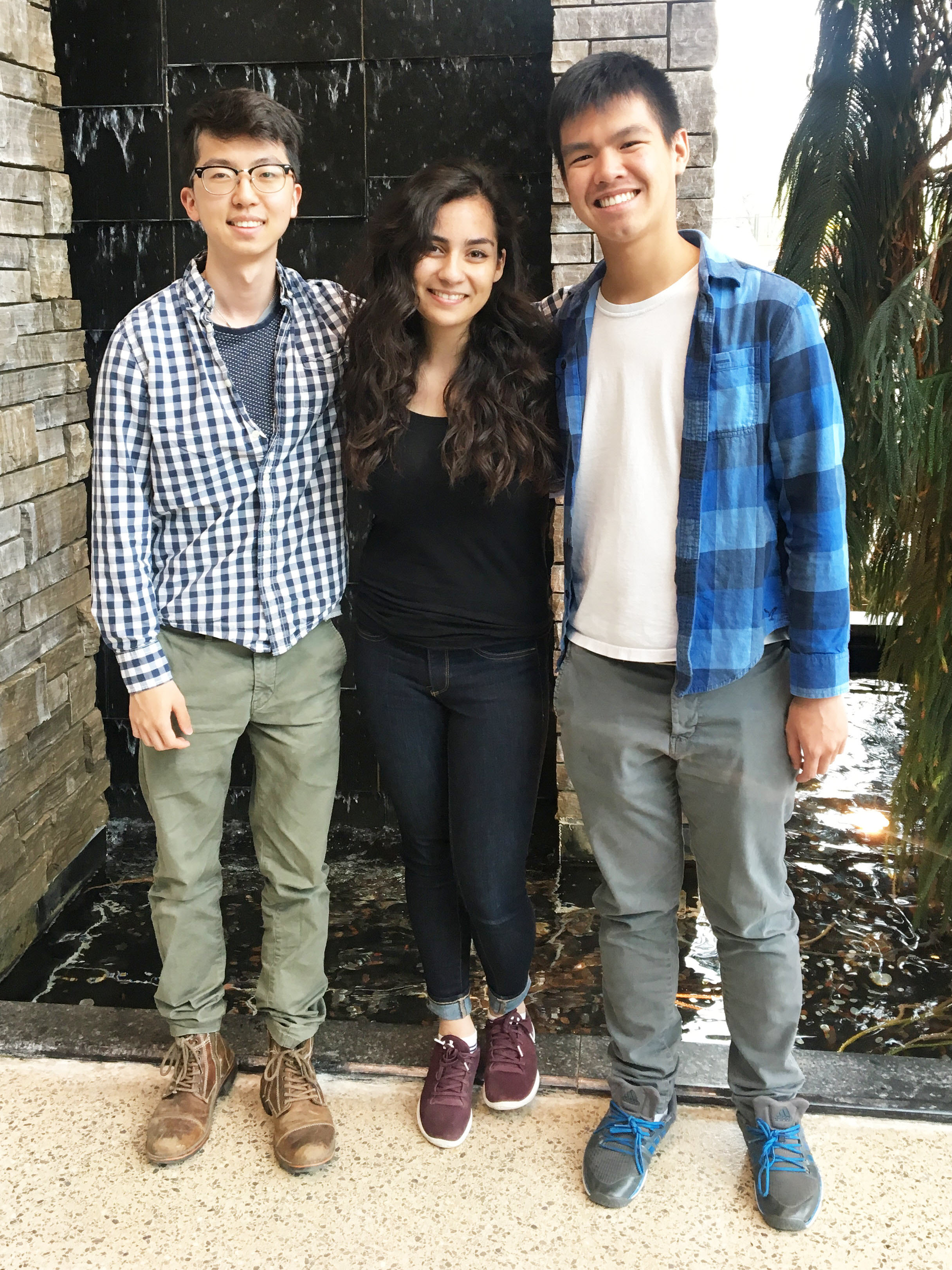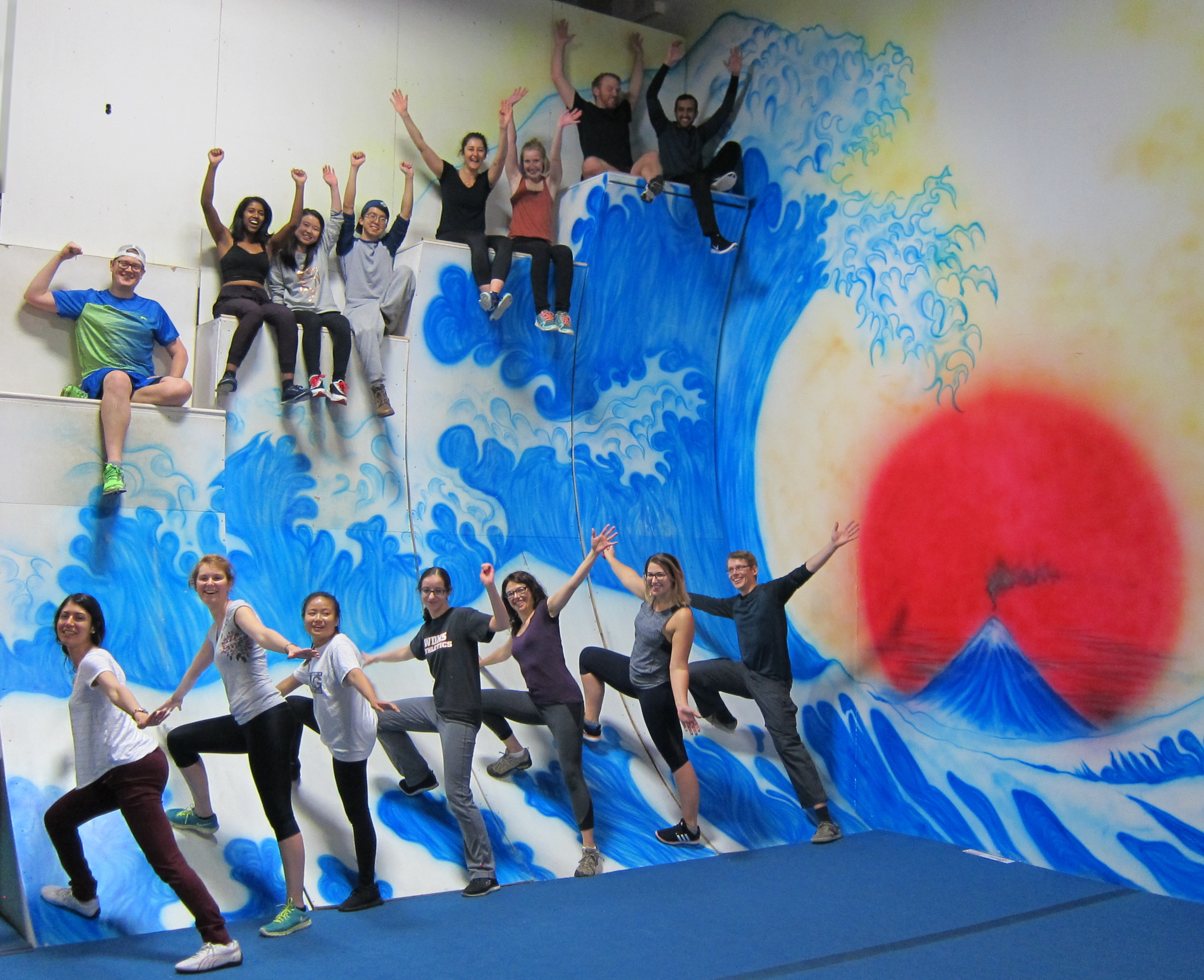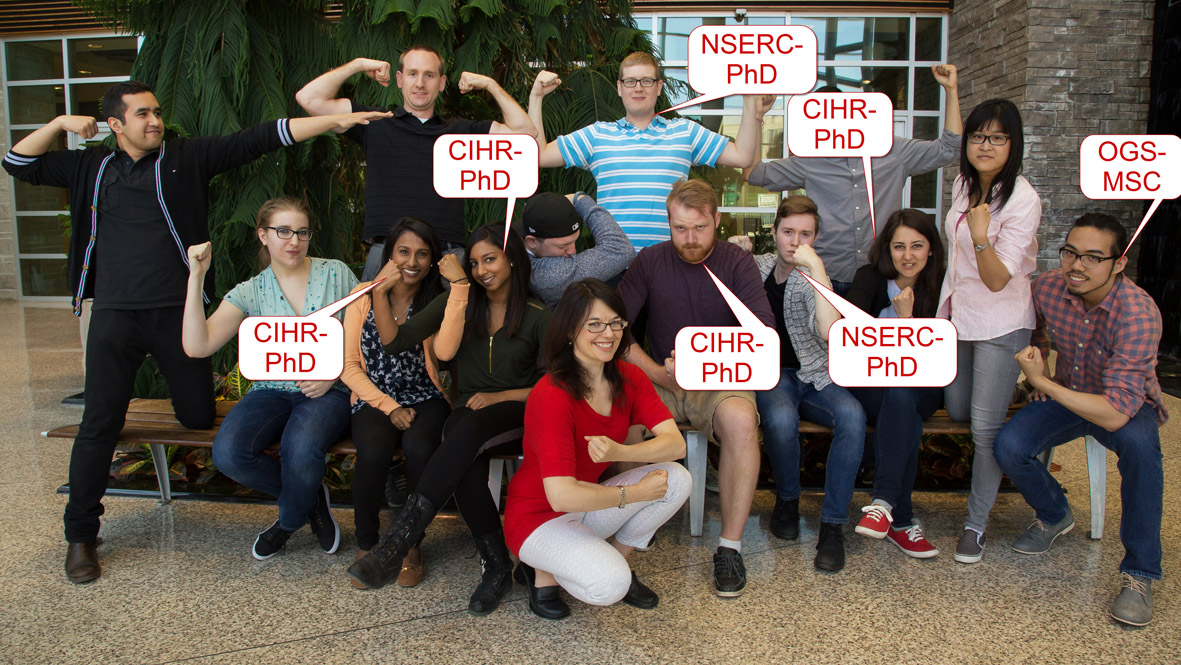Thank you for your interest in our lab. Unfortunately we have received over 200 applications for 2 thesis positions and so we have no stopped accepting applications. Interviews will occur in January and if you have not heard from us, you have not been selected for an interview. This is not a reflection on the quality of your application or your credentials but simply the sheer volume of applications. Dr. Bowdish will not be able to respond to your emails directly. Very best of luck with your search.
Tag Archives: undergraduate
Publication: “Monocyte-driven inflamm-aging reduces intestinal barrier function in females”
Click here to access: Monocyte-driven inflamm-aging reduces intestinal barrier function in females published in Immunity and Ageing, September 2024.
This publication by former PDF, Dr Candice Quin and team, discovers that inflammatory markers and gut permeability increase with age, but the leaky gut seems to be a female specific phenomena in both mice and humans.
Bluesky explainer thread below and here https://bsky.app/profile/msmacrophage.bsky.social/post/3l5ethyexgp2u
New publication alert! “Monocyte-driven inflamm-aging reduces
intestinal barrier function in females” by lead author Dr Candice Quin @uniofaberdeen.bsky.social. Read on for some surprising insights into sex differences in aging, the microbiome, inflammation, and the ‘leaky gut’ hypothesis….1/n
With age levels of inflammatory mediators (cytokines, CRP, & others) increase in the blood and tissues. This is often called ‘inflamm-aging’, and higher than age-average levels of these mediators are associated with chronic disease, frailty, and other age-associated ills. 2/n
Men & women age differently (‘men die quicker, women live sicker’)so it stands to reason they might ‘inflam-age’ differently, but very few studies on aging investigate sex differences in the aging trajectory. We looked at cellular & soluble inflammatory markers and saw sex differences! 3/n
We were surprised by the magnitude of sex differences but immunology is literally one of the worst disciplines when it comes to reporting by sex https://elifesciences.org/articles/70817
By why do we ‘inflamm-age’ in the first place? Might the mechanisms of inflamm-aging differ by sex 4/n
One of the major theories is that with age a dysbiotic microbiota causes the gut to become leaky (alternatively, the gut gets leaky with age and this alters the microbiota). Bacterial products leak out and cause inflammation. We’ve published in mice, others in other model organisms 5/n https://www.cell.com/cell-host-microbe/fulltext/S1931-3128(17)30112-9?elsca1=etoc&elsca2=email&elsca3=1931-3128_20170412_21_4_&elsca4=Cell%20Press
Evidence for the ‘leaky gut’ hypothesis is weak in healthy humans (despite what the probiotic industry might say). Leakiness is generally found in people who have comorbidities, or are frail so we looked at healthy/non-frail male (41) females (54) btw 20-102 yrs and were surprised to find…6/n
…that women appeared to have leakier guts over the life course (as measured by the serum marker zonulin- imperfect), and only women had evidence of an age-associated increase in the bacterial product LPS in their serum. Could the leaky gut hypothesis be female specific? 7/n
Human studies are observational so we turned to mice to understand the chain of causality. Old female, but not male, mice did indeed have leakier guts and this seemed to be caused by TNF produced by the elevated number of circulating inflammatory monocytes. 8/n
Tl;dr The age-related leaky gut -> increased circulating bacterial products -> systemic inflammation hypothesis may only be true in females! (also – always investigate sex in your research) 9/n
Why? Well the female gut changes dramatically during pregnancy to increase nutrient absorption – perhaps that is why women seem to have more permeability over the life-course. We are doing some cool ongoing studies in vitro looking at male vs female monocytes ability to break the gut barrier. 10/n
Caveats: This was a non-frail, mostly white population – aging & immunology studies show tremendous differences by location so needs to be reproduced. Gut permeability measures were done by looking at serum markers – easy on the participant but indirect at best. 11/n
Thanks to the whole (unfortunately not on Bluesky team)! This was an incredibly fun and challenging project to work on but has cemented my commitment to considering sex in all the research we do. 👩🔬🧪🦠🚨 12/12
The Bowdish lab is no longer taking thesis or project students for the 2024/25 academic year, but click here for an opportunity for students interested in aging research.
Unfortunately the Bowdish lab is at capacity for undergraduate students for next year; however, if you are looking to meet supervisors doing research in aging MIRA (McMaster Institute for Research on Aging) is partnering with McMaster’s Association for Undergraduate Research on Aging (AURA) to host Meet Your Supervisor – an in-person, networking and informational session aimed at connecting undergraduate students seeking research experience with MIRA Researchers. MIRA will also share information about the MIRA Undergraduate Summer Research Fellowships.
Event details:
WHEN: Monday January 22nd , 4 – 5:30 PM
WHERE: Farncombe Atrium, HSC 3N4
Please RSVP by January 15, 2022
The Bowdish lab is no longer accepting undergraduate applications for the 2020/21 academic year.
We have filled all summer and thesis positions for 2020/21. We thank you for your interest in our lab’s work and apologize that we cannot accommodate more undergraduates. We wish you every luck in finding a summer/thesis position.
Alumnus Update: Melissa Ling, Bowdish lab undergraduate, accepted to Yale University.
Congratulations to Melissa Ling, a former Bowdish lab undergraduate thesis student who was accepted to Yale University’s Masters of Medical Science in the Physician Associate Program. This prestigious program has a 3.6% acceptance rate so we are very proud of her.
Best of luck Melissa!
Pictured here in her Bowdish lab days.
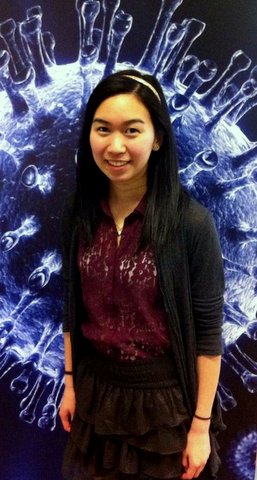
The Bowdish lab welcomes summer students Danny, Mina, Joseph and Melodie and congratulates them on their scholarship successes.
The Bowdish lab is pleased to welcome a recent biochemistry graduate and IIDR summer scholarship winner, Joseph Chon, Mina Sadeghi a MIRA (McMaster Institute for Research on Aging) summer student, Danny Ma a MIRA and NSERC-USRA winner and Melodie Kim, a BHSc summer studentship recipient. We’re thrilled to have such a talented group of students working with us this summer.
Bowdish lab joins the circus.
The lab that plays together stays (late nights scienc-ing) together, which is why the Bowdish lab had our annual retreat at Zacada circus school. Here we got some very sore muscles and discussed our successes and challenges of the past year and what our goals and ambitious are for the following year. Go Team!
Alumnus update: Former Bowdish lab undergraduate Charles Yin wins prestigious Vanier scholarship for his MD/PhD work!
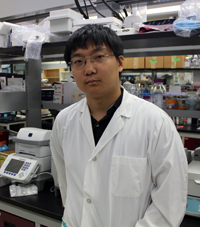 Congratulations to former Bowdish lab undergraduate student Charles Yin on his week of accomplishments – publishing his paper on one of his undergraduate projects and winning a prestigious CIHR Vanier Scholarship for his MD/PhD work at UWO.
Congratulations to former Bowdish lab undergraduate student Charles Yin on his week of accomplishments – publishing his paper on one of his undergraduate projects and winning a prestigious CIHR Vanier Scholarship for his MD/PhD work at UWO.
Congrats Charles!
The Bowdish lab is no longer accepting applications for undergraduate positions for 2017/18.
Thank you for your interest but all summer positions and thesis positions for 2017/18 are now filled.
The Bowdish lab is the strongest lab at McMaster and we have the scholarship winners to prove it!
Who’s got the strongest lab at McMaster? I do! We’ve had a great run of success at the Bowdish lab with fully all of our students receiving prestigious scholarships! And that’s not to mention our other successes such as our summer scholarship winners (Jason Fan – IIDR), our students who got their degree and moved on to great things (Dr. Fan Fei – manager of Mass Spec facility, Dr. Mike Dorrington – PDF at the NIH), and our PDF, Dr. Chris Verschoor who got a faculty position!


